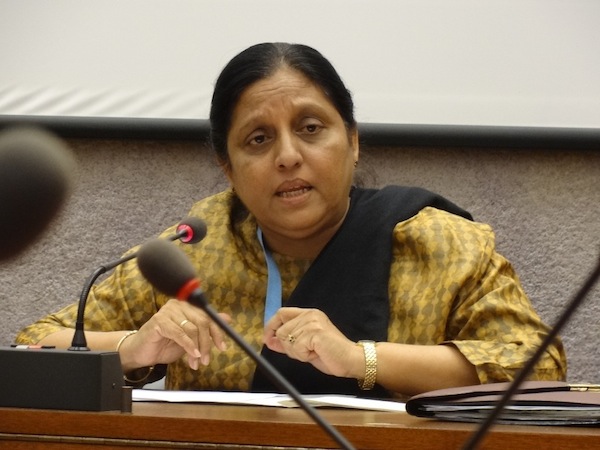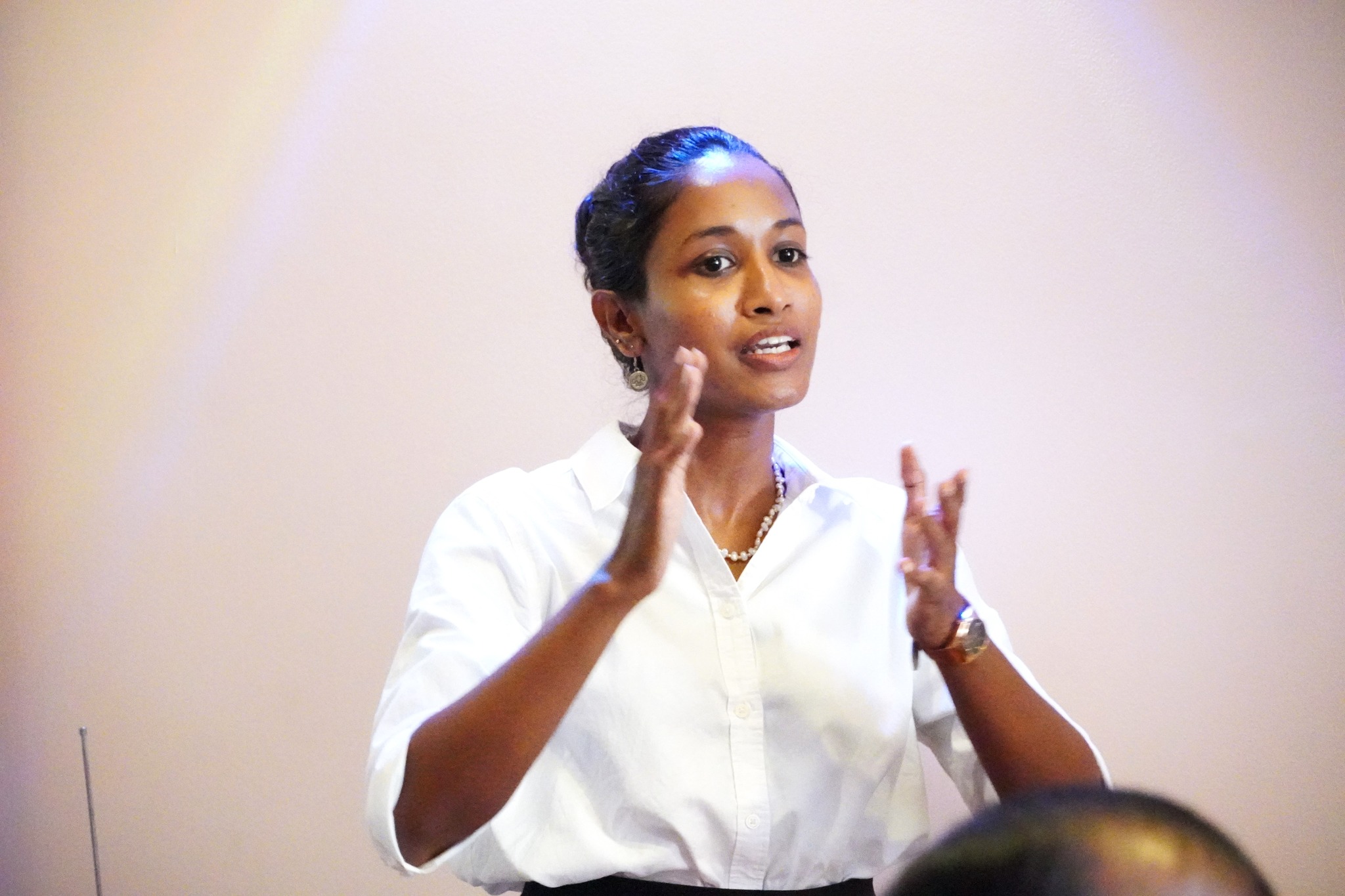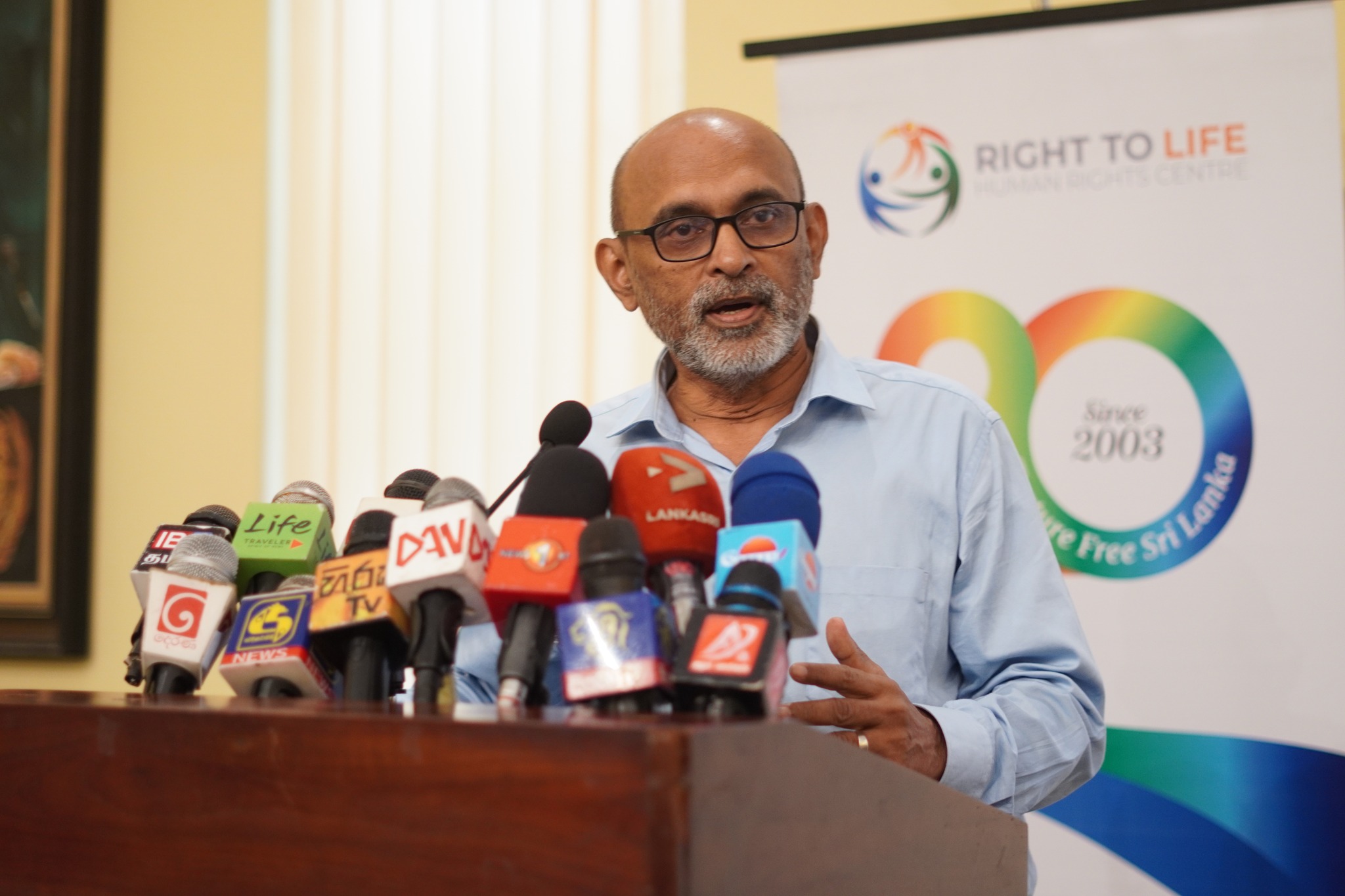Nilanthini was born in the village of Soruwila, Dimbulagala. Her father was Sinhalese, and her mother was Tamil. When Nilanthini was just ten years old, her father was abducted by a militant group. Despite the family’s efforts to find him, they never discovered his whereabouts. With the loss of their father, the family’s means of survival were severely affected, and the children’s education was also disrupted.
One day, after years of searching, they received a letter saying that their father was in Jaffna. Nilanthini’s mother, along with the children, traveled to Jaffna, and after much difficulty, they were able to find him. However, without any steady source of income, the family lived in extreme hardship and temporarily settled in Kilinochchi. By this time, the war had intensified, and economic struggles, along with pressure from various militant groups, led Nilanthini to marry at the age of 25 for protection. Her husband, who was originally from Batticaloa, was living in Jaffna at the time.
During a time when food was scarce, her husband went to find some rice and he was missing since then. Nilanthini was pregnant when he disappeared. Despite searching everywhere possible, they were unable to find him. Later, Nilanthini and her family displaced due to war and they were sent to a refugee camp in Vavuniya, where her mother passed away.
After five months in the camp, they were relocated back to their home village of Dimbulagala. By this time, most of the women in Soruwila village were widows. Initially, they received food aid from temples, kovils, and other organizations, but over time, they had to rely on fishing, chopping firewood, and other wage labour for survival. At one point, Nilanthini and seven others were given temporary employment by the Red Cross.
Through this job, Nilanthini was able to earn around Rs. 50,000. With her skill in tailoring, she used that money to buy a sewing machine and started making clothes to support herself. Now, she lives with her father and daughter, and her only hope is to provide her daughter with a good education and a better life.
However, Nilanthini still feels deep sorrow over the way Hindu society treats widows like her during religious and other celebrations. They are often left out, which adds to her grief.
– Christie Shelton Fernando


